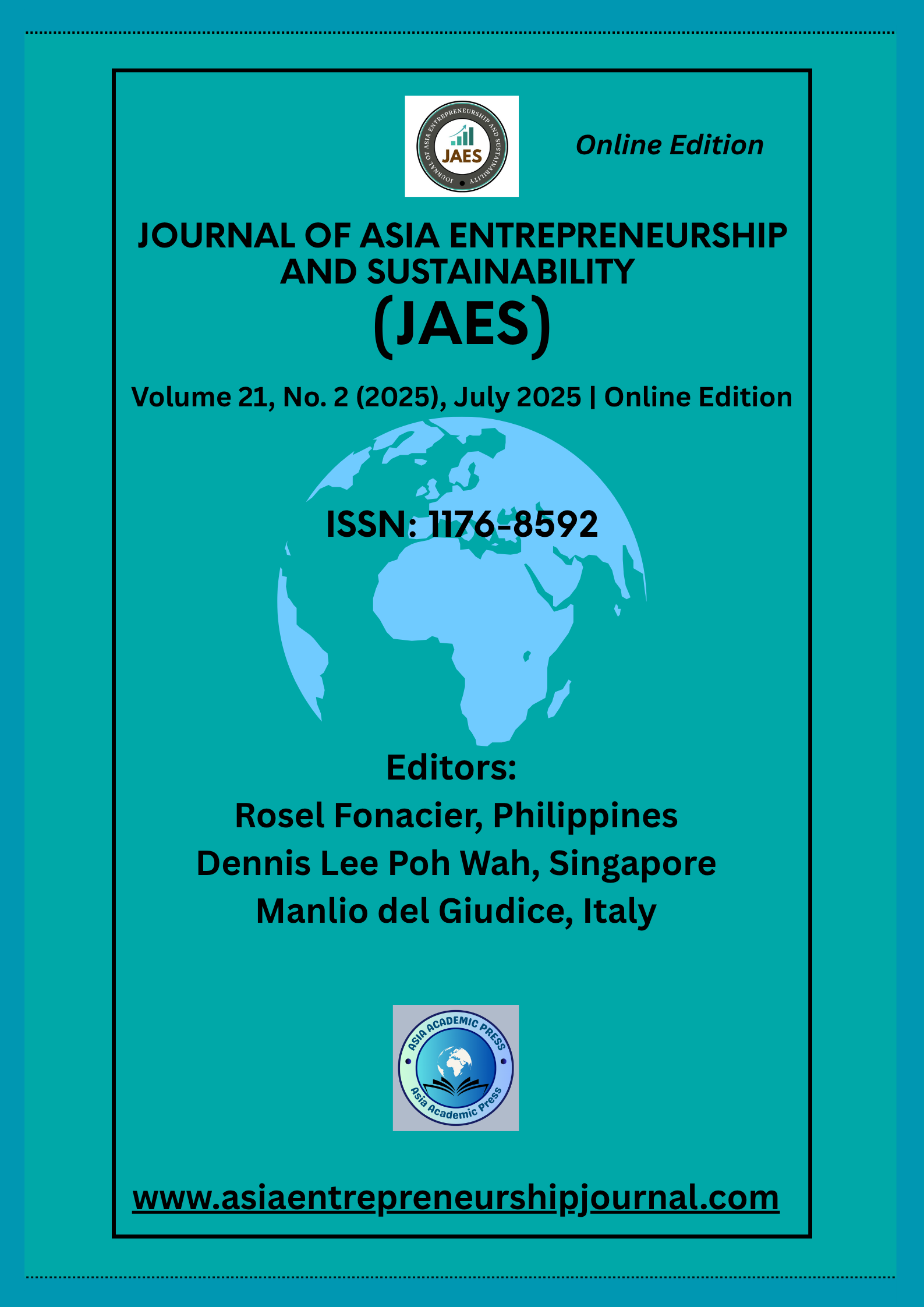Green Escapes: Nurturing Positive Perceptions for Sustainable Nature-Based Tourism Marketing
DOI:
https://doi.org/10.53555/jaes.v21i2.24Keywords:
Green Escapes, marketing, strategic marketing, nature-based tourism, tourism.Abstract
In the realm of contemporary tourism marketing, harnessing the verdant allure of nature-based destinations stands as a strategic imperative. This research embarks on an odyssey to explore the nuanced interplay between the perceptual facets of such environments and the sustainability-focused narratives wielded in marketing strategies. By using a multidisciplinary approach that unites the fields of consumer perception psychology, strategic marketing, and sustainable tourism, this research reveals the significant influence of favourable views on the appeal of nature-based tourist products. A complex conceptual framework suggests that positive views, which are cultivated via well-constructed marketing narratives, operate as predecessors to intents of patronage and support for environmentally friendly behaviours. Employing a rigorous empirical approach, we delve into the perceptions of tourists, unravelling the latent motivations underpinning their choices, and scrutinizing the resonance of sustainability messages. This scholarly voyage holds implications not only for marketers seeking to allure the ecologically conscious traveller but also for policymakers tasked with safeguarding the fragile ecosystems that underpin the allure of green escapes. This study opens the door to a symbiotic connection where nature-based tourism thrives and nature itself finds sanctuary in sustainable stewardship by strengthening the marriage of perception and sustainability.
References
1. Font, X., & McCabe, S. (2017). Sustainability and marketing in tourism: its contexts, paradoxes, approaches, challenges and potential. Journal of Sustainable Tourism, 25(7), 869–883. https://doi.org/10.1080/09669582.2017.1301721
2. Fransi, E. C., Ramón, N. D., Ferrer-Rosell, B., Mariné-Roig, E., & Martín-Fuentes, E. (2020). Sustainable Tourism marketing. Sustainability, 12(5), 1865. https://doi.org/10.3390/su12051865
3. Guorong, T., Zhang, J., & Zhang, Y. (2017). Livestock Animal displacement on rural tourism destinations: Placing livestock’s “Pest” role in the background. Sustainability, 9(8), 1307. https://doi.org/10.3390/su9081307
4. Han, J. H., Lee, M., & YunSeop, H. (2016b). Tourists’ environmentally responsible behavior in response to climate change and tourist experiences in Nature-Based tourism. Sustainability, 8(7), 644. https://doi.org/10.3390/su8070644
5. Hudson, S., So, K. K. F., Li, J., Meng, F., & Cárdenas, D. (2019). Persuading tourists to stay – Forever! A destination marketing perspective. Journal of Destination Marketing and Management, 12, 105–113. https://doi.org/10.1016/j.jdmm.2019.02.007
6. Kronenberg, J., Bergier, T., & Maliszewska, K. (2017). The challenge of Innovation Diffusion: Nature-Based Solutions in Poland. In Theory and practice of urban sustainability transitions (pp. 291–305). https://doi.org/10.1007/978-3-319-56091-5_17
7. Lopes, P. F. M., De Figueiredo Mendes, L., Fonseca, V. P., & Villasante, S. (2017). Tourism as a driver of conflicts and changes in fisheries value chains in Marine Protected Areas. Journal of Environmental Management, 200, 123–134. https://doi.org/10.1016/j.jenvman.2017.05.080
8. Maes, J., & Jacobs, S. (2015). Nature‐Based solutions for Europe’s sustainable development. Conservation Letters, 10(1), 121–124. https://doi.org/10.1111/conl.12216
9. Mandić, A. (2019b). Nature-based solutions for sustainable tourism development in protected natural areas: a review. Environment Systems and Decisions, 39(3), 249–268. https://doi.org/10.1007/s10669-019-09718-2
10. Mazambani, L., & Mutambara, E. (2018). Deepening sustainable value creation in Market-led poverty alleviation through a demand and supply integration framework: Significance to tourism. African Journal of Hospitality, Tourism and Leisure, 7 (2), 4-16.
11. Melotti, M., Ruspini, E., & Marra, E. (2017). Migration, tourism and peace: Lampedusa as a social laboratory. Anatolia - an International Journal of Tourism and Hospitality Research, 29(2), 215–224. https://doi.org/10.1080/13032917.2017.1414441
12. Passafaro, P. (2019). Attitudes and Tourists’ Sustainable Behavior: An overview of the literature and discussion of some theoretical and methodological issues. Journal of Travel Research, 59(4), 579–601. https://doi.org/10.1177/0047287519851171
13. Paul, S., & Roy, S. (2016). Tourism-based heritage conservation in Murshidabad: an appraisal. Journal of Heritage Tourism, 12(2), 139–154. https://doi.org/10.1080/1743873x.2016.1159685
14. Winter, P. L., Selin, S., Cerveny, L. K., & Bricker, K. S. (2019b). Outdoor Recreation, Nature-Based Tourism, and Sustainability. Sustainability, 12(1), 81. https://doi.org/10.3390/su12010081
15. Zevenbergen, C., Fu, D., & Pathirana, A. (2018). Transitioning to sponge cities: Challenges and opportunities to address urban water problems in China. Water, 10(9), 1230. https://doi.org/10.3390/w10091230









